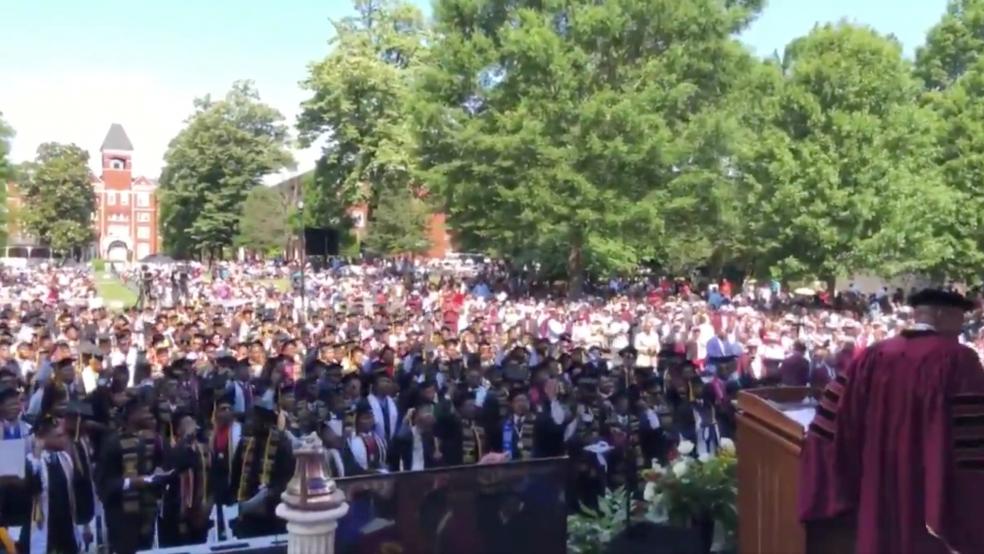The heartwarming story of billionaire investor Robert Smith’s surprise announcement Sunday that he would repay the $40 million or so in student loans taken by the 396 men in the 2019 graduating class at Morehouse College has generated an avalanche of media coverage, both of Smith’s gift and the systemic questions it raises about our education system and the roughly $1.6 trillion in outstanding student loans.
What about those who aren’t fortunate enough to have a billionaire wipe out their debt? Wouldn’t a universal debt forgiveness program or a “free college” policy like those proposed by Democratic presidential candidates Elizabeth Warren (D-MA) or Bernie Sanders (I-VT), among others, be more effective than a lone billionaire here or there trying to help out? Or would such programs be too skewed toward the upper middle class?
“Smith’s gift, while undoubtedly valuable, highlights how infrequently such a massive gift is given, and the difficulty of using the financial benevolence of billionaires to solve systemic issues,” P.R. Lockhart writes at Vox.
As Vox’s Dylan Matthews and others point out, Smith’s philanthropy also raises another, related policy issue: As a private equity fund manager, Smith has opposed closing the loophole that allows him to pay a 20% tax rate rather than higher income tax rate on earnings known as “carried interest.” That loophole is projected to cost the federal government nearly $16 billion in revenue from 2016 through 2025, The New York Times Editorial Board notes.
“Closing that loophole would be a much better graduation present for the class of 2019,” the Times editors argue. “An affordable college education should not require an act of largess. It should not require our applause. It merely requires adequate public investment, funded by equitable taxation.”


